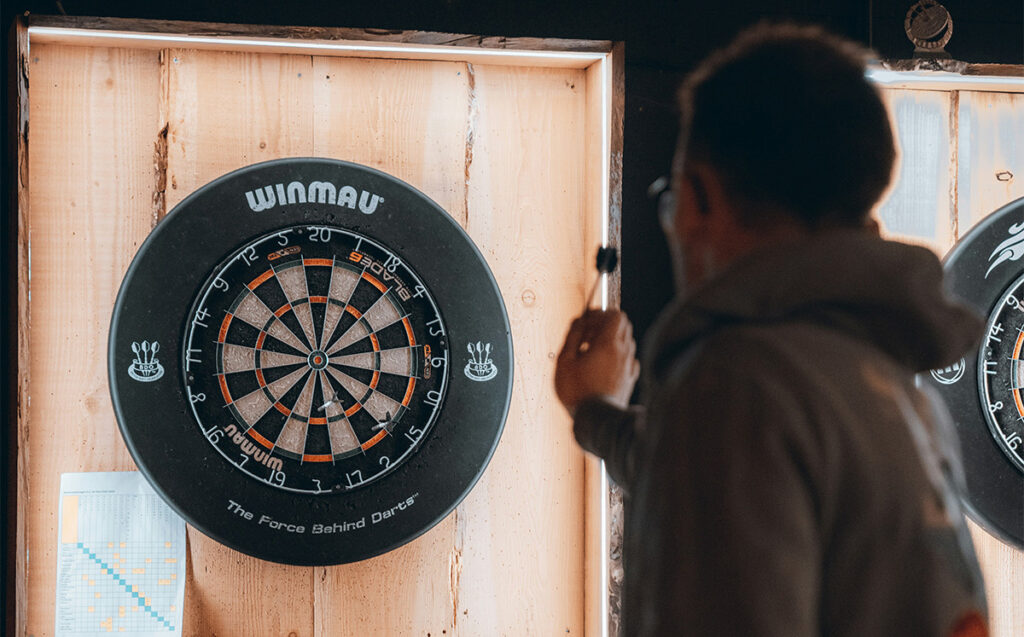Young people learn countless lessons as they grow up. In the sports they enjoy, in the various subjects they study in school, in the hobbies they develop a passion for, they discover what they love and what they excel at. But, ah, that subject of “excelling” — that’s a complicated subject. Young people who experience success in any one area often believe they are smart or talented enough — and certainly not lucky enough — to control the outcome. But that’s not the case — not even remotely.

Writing for Inc. magazine, Jeff Haden focuses on this issue. “We like to think we make rational decisions. We like to think our choices are based on data, information, and logic. We like to think we control, to at least some degree, outcomes.
“Even when — sometimes especially when — we don’t.
“Psychologists call that cognitive bias ‘illusion of control,’ (see Cognitive Biases: The Ultimate Cheat Sheet) a term first used as the title of a classic study conducted by Harvard psychologist Ellen Langer. Langer had people play games dictated by chance, like cutting cards and entering a lottery.
“In each case a person’s confidence in their chances of winning was influenced by a number of factors that had nothing to do with their actual chances of winning. People thought they had a better chance of winning the lottery if they chose the numbers. People thought they were more likely to beat a seemingly awkward and unconfident person at cutting cards. They even thought they were more likely to win the lottery if they spent more time thinking about winning the lottery.
“Even though knowledge or skill were not a factor, and even though the outcome was truly random… people still felt they were at least partly in control of the outcome.
“They experienced — they assumed — an illusion of control.”
This illusion is especially prevalent when a young person has not yet experienced a serious setback or failure. They haven’t had the chance to consider the possibility that outside forces almost undoubtedly contributed to the failure — just as they almost certainly contribute to success. They haven’t had the chance to think objectively about cause and effect.
There’s another contributing factor to the tendency to have an illusion of control and it’s one that is may be more problematic: the innate way in which we think. Nobel Prize winner and author Daniel Kahneman came to the conclusion that we have two ways of thinking. He explores his thesis in his best-selling book, Thinking, Fast and Slow (See Book Recommendations: Career/Success). Fast thinking is intuitive and emotional, where we’re basically making a lot of assumptions without considering how accurate they are. Slow thinking is deliberative and logical. The problem arises when we’re under stress and can’t devote the time to analyze a situation objectively (slowly) and start making judgments and decisions based on what may be emotional or flat out erroneous assumptions.
So what’s the lesson to be learned here? Haden sums it up nicely: “In business, and in life, there’s an eventual penalty for self-deception. For thinking you can predict the unpredictable. For thinking you can solve the inherently unsolvable. For thinking success is an attribute you somehow possess, instead of something that must be earned.
“When you succeed, be objective. No matter how smart your plan, your decision-making, or your strategy, luck likely played at least a small role. Some things happened that you didn’t predict. Some things happened that you didn’t — couldn’t — control.
“The key is to overcome the natural tendency to over-remember what you did well and forget what you didn’t. That way you won’t stop questioning your decisions, your perspective, and your approach to solving problems.”
It’s hard to be objective about your own successes and failures, and cognitive bias almost certainly plays a role, but devoting some time for a little introspection will help you learn from both success and failure — and lead to even greater future success.